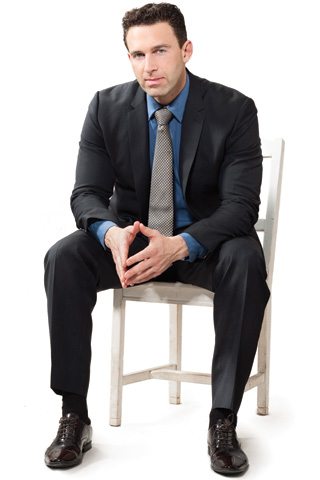Q&A: Wind Mobile CEO Anthony Lacavera, the man that’s battling big telecom
He’s been trading punches with the three big telecom companies for years. He’s just won a huge battle. Here’s what’s in it for you

When you launched Wind Mobile in 2009, you were a folk hero to disgruntled cellphone customers. Today, Canadians still pay some of the highest rates in the world, and customer service in the industry is as miserable as ever. What went wrong? Did you sell out?
Nothing went wrong. But when you’re competing against a 30-year entrenched oligopoly in Bell, Rogers and Telus, you encounter some obstacles.
Like what?
Where do I start? All three have failed to fully cooperate with the government’s requirement that they allow us to put our equipment on their towers, so we had to build our own. But the worst roadblock was the big three lobbying the CRTC to block our launch in 2009. They claimed that Wind was foreign controlled because my main investor was Egyptian. The CRTC shut us down for two months. I had 700 employees and zero revenue. We burned through tens of millions of dollars. The case went all the way to the Supreme Court, which dismissed it in April.
How did you celebrate the ruling?
I took my girlfriend, Kimberly, to Paris. She’s a shoe freak, so we went to a Christian Louboutin show.
Fancy! What did you buy her?
Well, I had a bit of sticker shock. I got her some DSquared shoes instead.
Now your focus is back on business. Assuming there are no more legal or regulatory complications for Wind, how will the Canadian mobile phone experience change over the next five years?
Right now, Canadians are paying more than twice as much per minute as our American counterparts. The increased competition will bring costs down by 30 to 40 per cent.
That sounds great, but is it realistic? Your investors have sunk $1.1 billion into Wind, and you have yet to turn a profit. Is Wind growing fast enough to survive?
Absolutely. My business plan calls for an investment of $1.7 billion over 10 years, and we’re essentially on that track.
Still, you must be a stress case.
I manage. I have a small plane down at Billy Bishop. That’s my escape—no BlackBerrys, no computers. It’s a forced clearing of the mind, and it’s incredibly peaceful. At night, there’s a cool blackness over Lake Ontario. On a clear day, you can see all the way to Niagara Falls.
Which is where you grew up, right? Did you always want to run your own company?
I think so. One summer I worked on the factory line in Thorold, making Ford truck frames. I was the rivet gun guy. I calculated how much the owners were making versus how much I was making and realized something important: you want to be the guy who owns the factory.
You went to U of T for computer engineering. I understand that you had a terrible credit rating after graduating. Why?
Because I couldn’t pay my Rogers bill. True story! My grades weren’t high enough to keep my scholarship, and I couldn’t afford my phone.
So, wait—all of this is just retribution?
Yeah, exactly! My whole life has been about getting revenge for that credit statement from Rogers. Seriously, though, they gouged me as a student—someone who doesn’t have any money to begin with—so every time I encounter a new obstacle with Wind, I feel like I’ve gotten used to it.
If you found yourself in an elevator with the big three CEOs, what would you say?
“Suit up. I’ll see you on the ice. But fight fair—don’t go scratch my car in the parking lot.”






The next young Ted Rogers in the making…
He is so full of it. Imagine any other business person complaining they failed because the COMPETITION didn’t help them!
It’s not competition – it’s call MONOPOLY.
Canadians are still paying some of the highest rates on mobile plans.
Customer service and tech support are RUDE, INSULTING, they hang up all the time and never call back. They are dismissive, incompetent morons who have no idea what they are doing. All intentional, to cover the garbage they call windmobil, all done with blessing of the greedy imports who have no respect for anyone or anything. The USED CAR SALES PEOPLE of wireless. Can’t even begin to tell you how BAD they are. WORST EVRE IN THE PAST 40 YEARS.